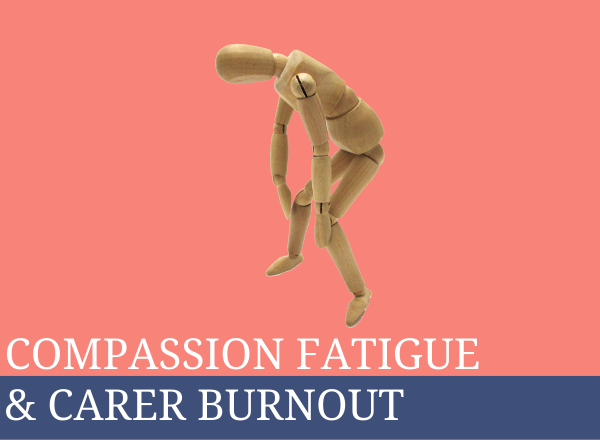We are coming up the end of the year in a year that has been like no other. Speaking to a variety of people over the last few weeks, a running theme has been “I’m exhausted”. This got me thinking about compassion fatigue and burnout in the “caring profession”. These are a real dangers for Social Workers, Psychologists, Support Coordinators and others in this profession.
Being so invested in our work; constantly assessing needs, giving, establishing professional boundaries and working collaboratively can lead to an intense fatigue and exhaustion that for some can make it difficult to re-engage. On top of that we are all currently dealing with additional challenges outside our workplace due to COVID.
An article by SaraKay Smullens explores the deeper effects of not just compassion fatigue but what she calls “Vicarious Trauma and Secondary Traumatic Stress”. This is where the worker is affected by the trauma of those they work with, or from events they witness happening to others. This is made much more profound if the worker has an unsupportive workplace.
The problem is that if the worker is already experiencing compassion fatigue, then the decisions and self-care needed to re-establish their energy and balance can seem out of reach. Some of the symptoms of burnout include becoming disengaged from clients, feelings of defeat and hopelessness, mental and physical tiredness. This can make it impossible to make positive decisions about self-care and do the small things that prevent that level of fatigue and exhaustion.
It is possible to come back from burnout and extreme compassion fatigue, but as with all things it is better to try to be aware of the ongoing stress and effects of your job and be honest and open when overwhelmed and stressed. Put small things in place that support you in your day or week. Recently a friend mentioned that she has a daily reminder in her calendar that asks her “what do I need?”. It can seem overly simple but these small “check ins” can prevent major exhaustion down the track.
SaraKay Smullens notes that one of the major contributors to compassion fatigue and burnout is an unsupportive workplace. This is so easily identified and such a shame that it contributes to many workers abandoning a career that they are great at. This means that, as a collective, we lose valuable skills and experience. Workplaces must be held responsible for their culture and the effects of stress and being overwhelmed. Stress can so easily travel down the chain of command, leaving the workers feeling their managers stress and those above them. As compassion fatigue can affect people’s ability to empathise, it can be understandable that if a manager or supervisor has compassion fatigue or is burning out, it will be felt by those being supported by that person.
A wholistic approach to self-care and team support is extremely hard to implement when we are already doing such intensive and important work but it is imperative to the care of our clients.
– Brigette.
____
References:
Smullens, S (2012) What I wish I Had Known: Burnout and Self-Care in Our Social Work Profession, The New Social Worker





